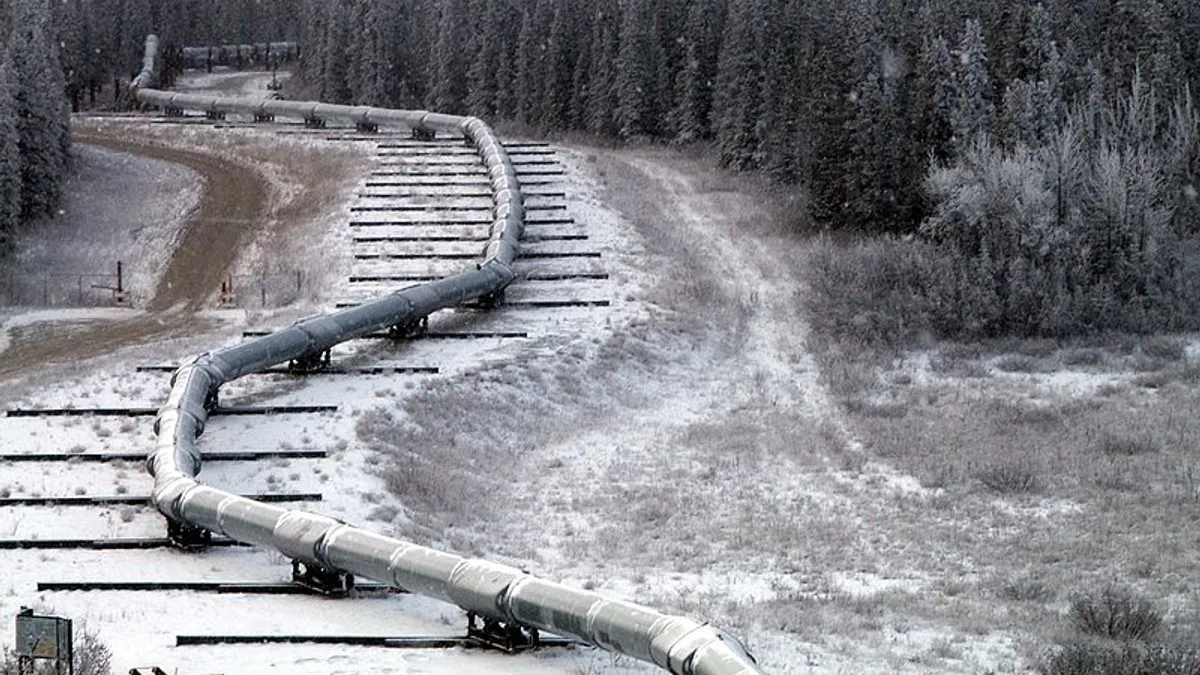Dive Brief:
- Virtually all heating bills will be higher this winter, in part because of last season's mild temperatures but also because of a rise in fuel costs, according to new analysis from the U.S. Energy Information Administration.
- Natural gas, propane and heating oil bills will all be more than 20% higher this year. Electricity prices, however, have remained relatively stable and so bills will rise in line with consumption.
- Almost four in 10 households heat with wih electricity and EIA expects them to spend an average of $945 on electricity this winter, about 5% more than last year.
Dive Insight:
Homes that heat with natural gas will likely see the lowest bills this winter, while propane bills will be the highest. In the Northeast, which has historically seen price hikes due to constraints on natural gas pipelines, it appears that supplies will be relatively stable, according to the Associated Press. New pipelines have improved delivery, with the AP saying natural gas from the Pennsylvania area will ease supply pains.
About half of United States homes use natural gas for their primary heating fuel, and EIA expects they will spend an average of $635 this winter, about 22% higher than last winter. Storage inventories will reach almost 4,000 billion cubic feet at the end of this month, the agency said, "which would be near a record high going into the heating season." Coal retirements are expected to boost prices even more, with analysts predicting prices will rise to 3/MMBTu.
While gas bills will be higher this year, they are in line with average costs for the five winters before last year.
"Winter heating expenditures for most fuels were especially low last winter, when energy prices were relatively low and warm weather reduced heating demand to the lowest level nationally in at least 25 years," EIA said.
Electricity prices are expected to remain stable, with residential bills set to decline for the first time since 2002, but this winter may see some modest spikes in line with consumption if natural gas prices rise.















